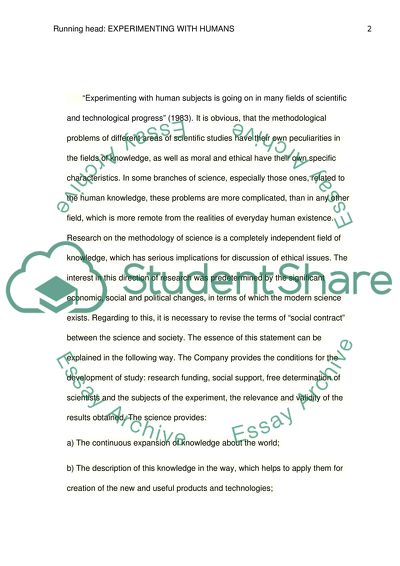Cite this document
(Philosophical Reflection on Experimenting with Humans Book Report/Review - 1, n.d.)
Philosophical Reflection on Experimenting with Humans Book Report/Review - 1. https://studentshare.org/philosophy/1835902-philosophical-reflection-on-experimenting-with-humans
Philosophical Reflection on Experimenting with Humans Book Report/Review - 1. https://studentshare.org/philosophy/1835902-philosophical-reflection-on-experimenting-with-humans
(Philosophical Reflection on Experimenting With Humans Book Report/Review - 1)
Philosophical Reflection on Experimenting With Humans Book Report/Review - 1. https://studentshare.org/philosophy/1835902-philosophical-reflection-on-experimenting-with-humans.
Philosophical Reflection on Experimenting With Humans Book Report/Review - 1. https://studentshare.org/philosophy/1835902-philosophical-reflection-on-experimenting-with-humans.
“Philosophical Reflection on Experimenting With Humans Book Report/Review - 1”. https://studentshare.org/philosophy/1835902-philosophical-reflection-on-experimenting-with-humans.


